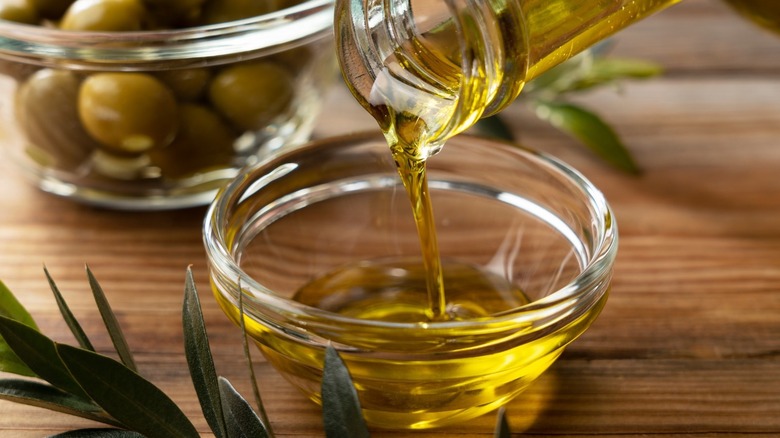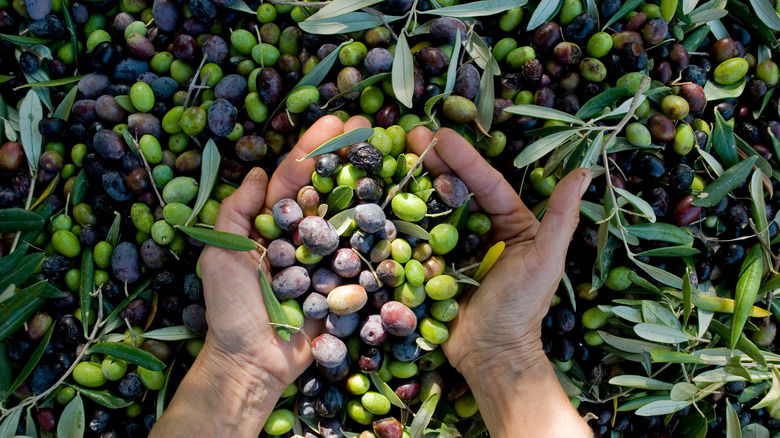Why Olive Oil May Be In Danger Of A Shortage
For years, the biggest worry that extra-virgin olive oil lovers had to deal with involved getting ripped off by either picking up a fake bottle, or getting our hands on oil which has been altered or labelled incorrectly, per Epicurious. But climate change may have rendered that concern moot and academic, as olive-growing regions face down a record-breaking heatwave which brought temperatures as high as 110 degrees F. The heat wave was so extraordinary that the southern Spanish city of Seville made history by putting a name to the phenomenon, becoming the first city to do so, per Smithsonian Magazine.
The heat waves that have pummelled Mediterranean countries including Greece, Spain, Italy and Portugal are problematic because while olives are strong trees that can withstand high heat and dry weather, Euronews says this year's conditions are beyond what the groves are able to tolerate. Andalusian farmer Felipe Elvira tells Euronews that the farmers "are used to a lack of water, but not to this point. The region used to get 800 liters of rainfall per square meter but is set to get around half that amount this year. Every year it's worse."
While olive trees aren't likely to die from lack of water, when the resource is scarce, the trees protect themselves by producing no fruit, per Euronews, which is how farmers know olive production is likely to fall.
Spain is bracing itself for a drop in olive harvests
The markets are already bracing themselves for the coming shortage. Fortune says the anxiety over Spain's crop this year is already being seen in the olive oil market, where prices are already up 8.3%. A bad olive crop for Spain spells bad news for the olive oil industry as a whole because, as the International Olive Council points out, Europe pressed more than 2 million tonnes of olive oil between 2020 to 2021. Fortune says that of that, Spain produced 1.3 million tonnes, followed by Greece, Italy, and Portugal.
Spain's Agriculture Minister Luis Planas is very clear about the consequences this year's record-breaking heatwave, which has been named Zoe, will have on olive oil production this year. "If there is no temperature relief or rains in the coming weeks, this year's olive harvest could be notably lower than previous ones. The olives sector is concerned about oil production," Planas told Bloomberg News. And that in turn would mean a drop of 25% to 30% less Spanish olive oil after the season, per The Guardian.
Euronews says Spanish farmers have a backup plan. Rather than wait for more heat and less water, they could choose to harvest what olives they can a bit earlier. But doing this will impact not only the number of olives they get but also the kind of oil they can extract from the distressed fruit. In either case, the situation is not likely to end well unless the rains come.

